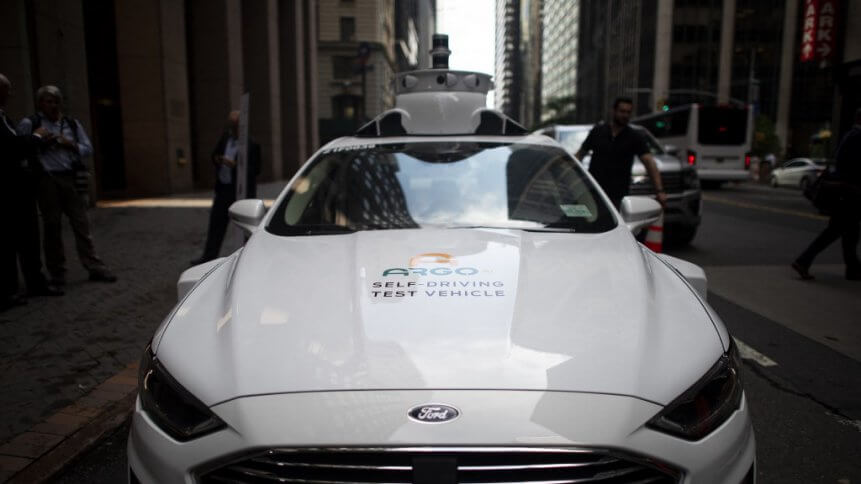


Lyft and Ford plan to deploy at least 1,000 autonomous vehicles on the Lyft ride-hailing network, with Argo Ai will be supplying the technology. (Photo by Johannes EISELE / AFP)
The Ford Motor Co. and US ride-hailing group Lyft announced plans this week to team up on an autonomous ride-hailing vehicles venture that will begin with pilot projects in Miami, Florida and Austin, Texas.
Under the program Ford self-driving cars, with safety drivers, will be deployed on the Lyft app in Miami later this year, and in Austin starting in 2022. Both Lyft and Ford are planning to deploy at least 1,000 autonomous vehicles on the Lyft network in various locations over the next five years.
Lyft will take a stake in the autonomous platform Argo AI, which will supply the technology for the venture. “This collaboration marks the first time all the pieces of the autonomous vehicle puzzle have come together this way,” Lyft co-founder and chief executive Logan Green said. “Each company brings the scale, knowledge and capability in their area of expertise that is necessary to make autonomous ride-hailing a business reality.”
The venture is the latest step toward deploying robo-taxis on American roadways, with several test projects underway and a fully autonomous commercial service deployed in Arizona by Google parent-owned Waymo.
Earlier this year, Lyft agreed to sell its own autonomous driving division to a unit of Japan’s Toyota for $550 million. At the time, Lyft’s move followed a similar divestment from Uber last year, with ride-sharing firms focusing on core operations as they struggled during the coronavirus pandemic.
Uber’s rideshare services had been hit hard by the pandemic, as governments across the world issued stay-at-home mandates. While restaurants and retailers are asked to shut tight to foot traffic customers, there was a surge in demand for their food and grocery delivery services. As a response to the heightened demand, Uber offered a waive in delivery fees across the US and Canada and extended its business model to deliver essential goods and parcels.
While the pandemic has proven a challenge for the rideshare industry, it has stimulated demand for other parts of the business — Uber announced it would launch a grocery delivery service in July 2020 due to the surge in consumer demand for its food dispatch services. The global health crisis placed a near-halt to all traveling, and Uber certainly felt the pinch of this — rides dropped about 80%.
© Agence France-Presse
20 June 2024